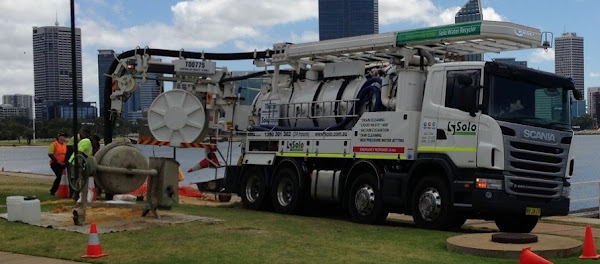Here Is Your Handy Guide to Understanding Waste Transportation
Stormwater runoff pollutes the oceans, rivers, and creeks. Similarly, if you are not careful, waste from your business may end up in landfills and other areas. This carelessness may have a negative impact on people's health and the environment as a whole. As a result, it is your responsibility to keep the waterways, landfills, and environment clean.
Anyone who transports or tows waste from commercial sites, homes, and government buildings contributes to the global environment's quality. You can improve the quality and cleanliness of the environment by ensuring that your company transports and disposes of its waste in an efficient manner. Furthermore, a company that ensures that its waste is transported properly will prevent chemicals, litter, and other hazardous materials from entering soil and water streams.
This explainer
is dedicated to exploring the nitty-gritty of waste transport in detail.
What
does the law state?
The
Environmental Protection Act of 1994 makes it an offense to transport waste in
ways that may cause it to be released into the environment. Allowing waste to
enter a stormwater drain or roadside gutter is also illegal and may result in
penalties.
As a result,
businesses will have to transport and dispose of their waste in accordance with
the laws and regulations in place. In addition to incurring penalty units for
waste mismanagement, your company's brand image will be harmed. As a result, a
company must go to great lengths to ensure that waste is handled properly.
Proven
tips for transporting waste safely
Here are some
key tips to help transport waste safely and effectively.
Before hiring
a waste transport partner, you must check the fleet of containers it has.
Furthermore, you must know the maximum weight load that these containers can
carry. Last but not least, ensure that the containers have a robust built.
You must make
sure that the waste weight should be spread evenly. If you load the waste
matter in a container disproportionately, you will raise the chances of
spillage.
When you load
the waste matter in the container, you must make sure it should be done
professionally. Sometimes, while loading the waste, you are likely to drop some
of the waste matter on the ground. This, however, should not happen if you want
to be a business that is environmentally responsible.
Make sure the
waste matter is secured using a rope or straps. Other than securing the load,
you must make sure that it is even covered well. You may put on different
covers over your business’s waste load; these covers may include trailer pets,
tarpaulins, purpose-designed covers, and trailer nets.
You will want
to use sand and soil before transporting the waste material. The use of these
materials over waste matter will help minimise dust.
If, however,
your business’s waste matter is secured inside a skip or bin, you will have to
ensure that the lid of the container is closed. Besides, you will also have to
make sure whether the load is covered effectively and the waste is secured
well.
Keep checking
the load regularly during transportation; this way, you will avoid facing nasty
surprises of waste spillage whenever you reach the dumping facility.
Once you have
unloaded the waste matter to the dumping facility, make sure you sweep the
trailer or trailer. The sweeping exercise will help you ensure that no waste
matter will remain on the floor of the transportation container.
Whenever you
are delivering the waste material, you must make sure that the unloading
process happens on a gravelled area or a grassed space. The idea is to make
sure that the unloading does not happen near roadside gutters, waterways, or
stormwater drains.
If, however,
they are leaks or spills happening, you must immediately clean them using
brooms, shovels, or dry absorbent materials, including kitty litter and rags.
Last, make it
a point to recheck the transportation vehicle used for ferrying the waste from
your business facility to the dump yard; the vehicle must not have any defects,
such as oil leaks.
Even the most
seasoned business leaders can become overwhelmed when it comes to waste
transportation and disposal. That is why it is critical for businesses to work
with a reliable waste transportation and disposal partner. When you're looking
for a business partner who can help you navigate the waste management landscape
with confidence, contact Solo Industrial Services.
Here
is how Solo Industrial Services will help
Solo
Industrial Services has helped businesses in transporting waste with
confidence. With a growing fleet of fully licensed vehicles, we are well-versed
in waste transportation and bulk rubbish removal. Our fleets are built
to handle both large and small amounts of waste. We have fleets that can handle
any type of waste material, including liquid and solid waste.
We have bulk transport vehicles and liquid tankers with capacities ranging from 1,200 litres to 24,000 litres. Call 1300 46 76 56 to speak with one of our experts today. Discuss your business needs with our specialist and find out how we can help you transport your waste safely, effectively, and in accordance with the law.

Comments
Post a Comment